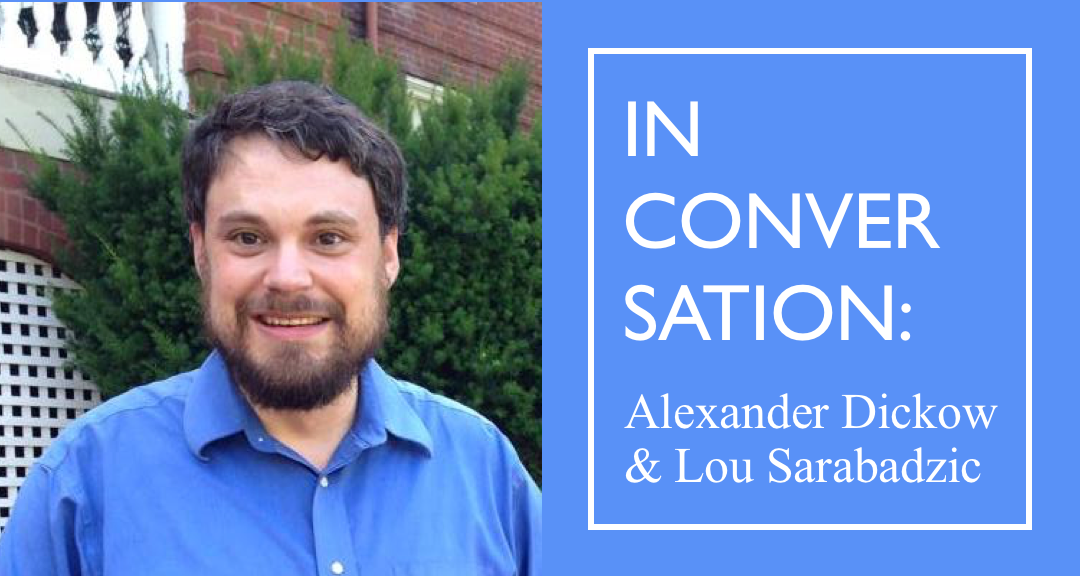Alexander Dickow has been Asymptote’s Communications Manager since April 2017. He is also a talented translator: in 2018, he received a prestigious PEN/Heim Translation Fund Grant to translate Sylvie Kandé’s Neverending Quest, and was a runner-up in Asymptote’s 2013-2014 Close Approximations Translation Contest. As a scholar at Virginia Tech, Alexander Dickow specializes in French and Francophone literatures and cultures. And as if all of these activities didn’t keep him busy enough, he’s also a respected bilingual poet. He published his very first book, Caramboles, a French/English bilingual poetry collection, with publisher Argol in 2008, and a French poetry collection, Rhapsodie curieuse, with Louise Bottu in 2017. His first poetry collection in English, Trial Balloons, appeared in 2012 with Corrupt Press, and his latest work, Appetites, has just been published in 2018 by MadHat Press. As a bilingual poet herself, Asymptote’s Assistant Managing Editor (Issue Production) Lou Sarabadzic wanted to know more about his views on multilingualism, poetry, and the creative process.
Lou Sarabadzic: Your latest collection, Appetites, has just been published by MadHat Press. In a 2016 interview, you said that you were “fatally allergic to titles.” However, with such a strong theme connecting your poems, eloquently announced by a single word, “Appetites,” I have to ask: what came first? Was it the collection’s title? The idea? Or individual poems which happened to share this common theme?
Alexander Dickow: The poems came first—I wrote a whole slew in a short period, maybe a month, with the culinary themes. It occurred to me at some point that more or less everything I’ve done is related in some way to eating: my first book was Caramboles, which designates the starfruit, among other things, and it contains a culinary poem or two also, and Rhapsodie curieuse, in French, is based around the central emblem of the persimmon. My first publisher found the title Caramboles, but the others were my choice. So I guess what came first was the obsession—then the poems, and then the actual title. Of course, food is what I refer to elsewhere as a “paravent” topic—i.e. it’s a vehicle for talking about something else, much like love or politics as subjects of poems.

